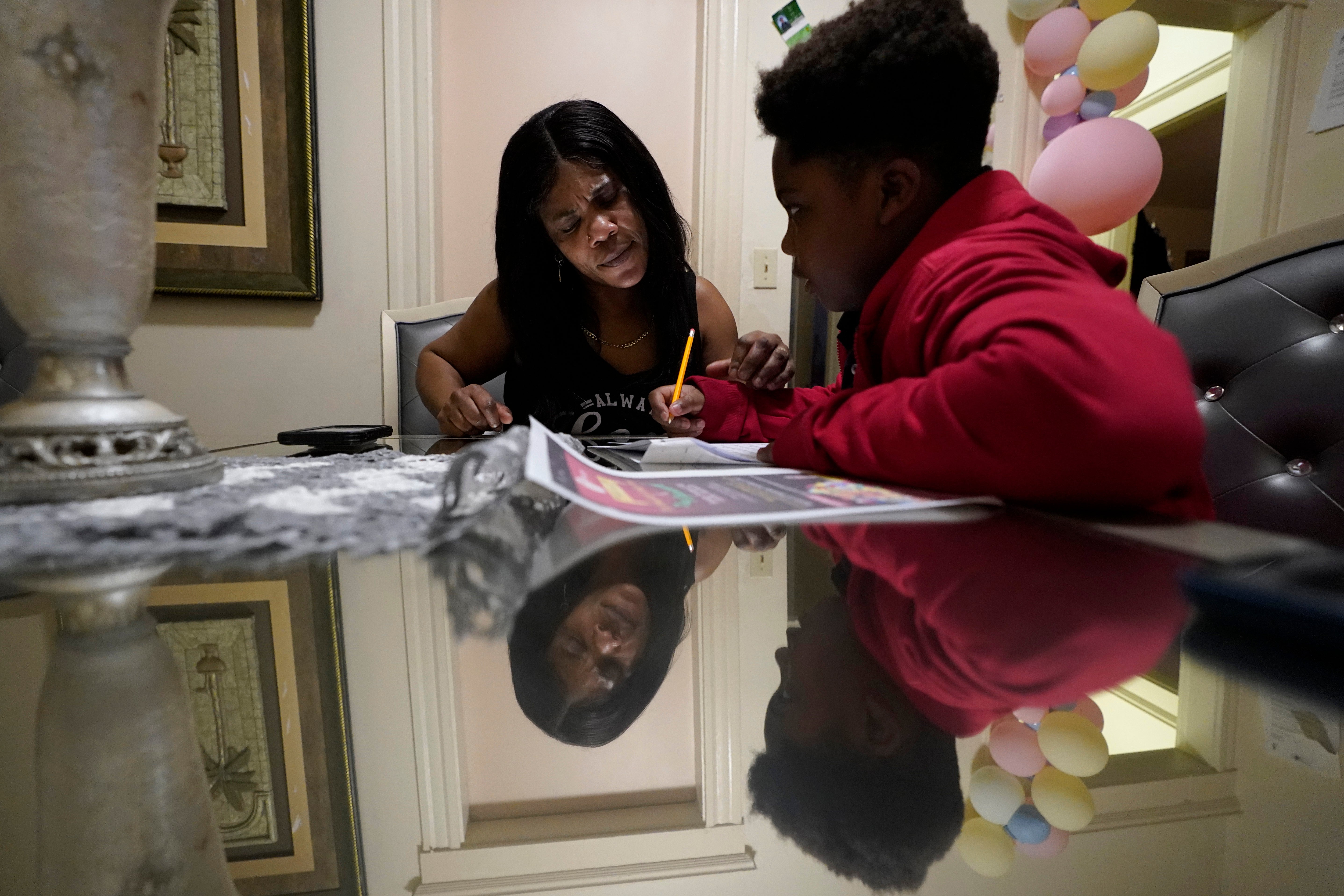LOCALIZE IT: When parents don't know about student struggles

EDITORS/NEWS DIRECTORS:
Huge numbers of American schoolchildren are behind in school. Yet the vast majority of parents think their own child is performing at grade level.
The disconnect is not new, but after the COVID-19 school closures, the stakes for children have in many ways never been greater. Opportunities to catch up are available in some places, thanks to federal pandemic aid, but will likely dry up in the coming years.
It will take better communication with parents to help students get the tutoring, summer school and other support they need, experts say.
Schools have long struggled to communicate clearly with some parents about their children’s academic progress, especially when students aren’t doing well. That’s because teachers have historically not been trained to talk to parents and don’t feel supported by their principals to have difficult conversations with parents, experts say.
A 2022 survey of 1,400 public school parents around the country by Learning Heroes, a nonprofit, showed 92% believed their children were performing at grade level. But in a federal survey, school officials said half of all U.S. students started this school year behind grade level in at least one subject.
___
FIND AP’S STORY HERE:
Many kids are struggling in school. Do their parents know?
___
ADD LOCAL CONTEXT
An analysis of test scores by Harvard and Stanford researchers shows how much students in individual school districts across 30 states fell behind during the pandemic. The Education Recovery Scorecard also allows users to compare student data based on race and socioeconomic status. Click on “key findings” to see state-specific results for:
Alabama
Arizona
Arkansas
California
Colorado
Connecticut
Florida
Georgia
Kansas
Kentucky
Louisiana
Massachusetts
Michigan
Minnesota
Mississippi
New Hampshire
North Carolina
Oklahoma
Oregon
South Carolina
Tennessee
Texas
Virginia
Washington
West Virginia
Wisconsin
Wyoming
Farther down in the site, you can explore student performance in individual school systems in those 30 states. Under “Change in average math scores” and “Change in average reading scores,” you can click on school systems where they appear on the U.S. maps to see how they compare with others nationally and how much ground their average student lost or gained following the pandemic.
Many school districts test students throughout the year to monitor student progress in reading and math. Reporters can ask districts whether they routinely share that data with parents and how it’s shared.
Local parent advocates and organizers can be good sources for finding parents who were unaware their children were behind in learning.
___
TAKING YOUR REPORTING FURTHER
— When interviewing parents, you could ask how they get information about their child’s progress from their school and district. Does it come by mail, email, in their child’s backpack? Do they typically understand it? What was their understanding of their child’s academic ability in reading and math? Did they think they were meeting expectations for their grades? Why or why not? If they didn’t know their child was behind in a particular subject, why do they think they were unaware?
— At school systems that share standardized test results with parents — and not just report cards — you could ask if they teach parents how to interpret the data or help them make meaning from the data. For example, do they communicate it as a percentile, which might not mean much for some parents, or do they say your fourth grader is reading at a first grade level? Are teachers trained or encouraged to share this data?
— More information on the gap between parent perception and student performance is available from Learning Heroes, a nonprofit dedicated to improving communication between public schools and parents about student academic progress: https://bealearninghero.org/
— Here are two resources from Learning Heroes to help parents get a better understanding of their child’s academic progress:
Readiness Check is a K-8 interactive tool to help families determine whether children have mastered foundational skills to be ready for their next grade.
Parent-Teacher Planning Tool is an online tool to help parents plan parent teacher conversations.
___
Localize It is an occasional feature produced by The Associated Press for its customers’ use. Questions can be directed to Katie Oyan at koyan@ap.org.
Subscribe to Independent Premium to bookmark this article
Want to bookmark your favourite articles and stories to read or reference later? Start your Independent Premium subscription today.
